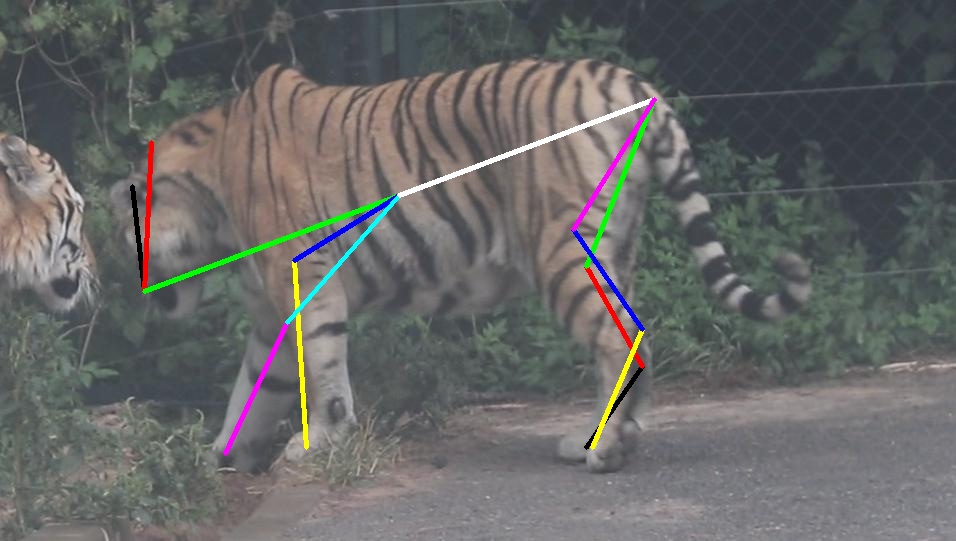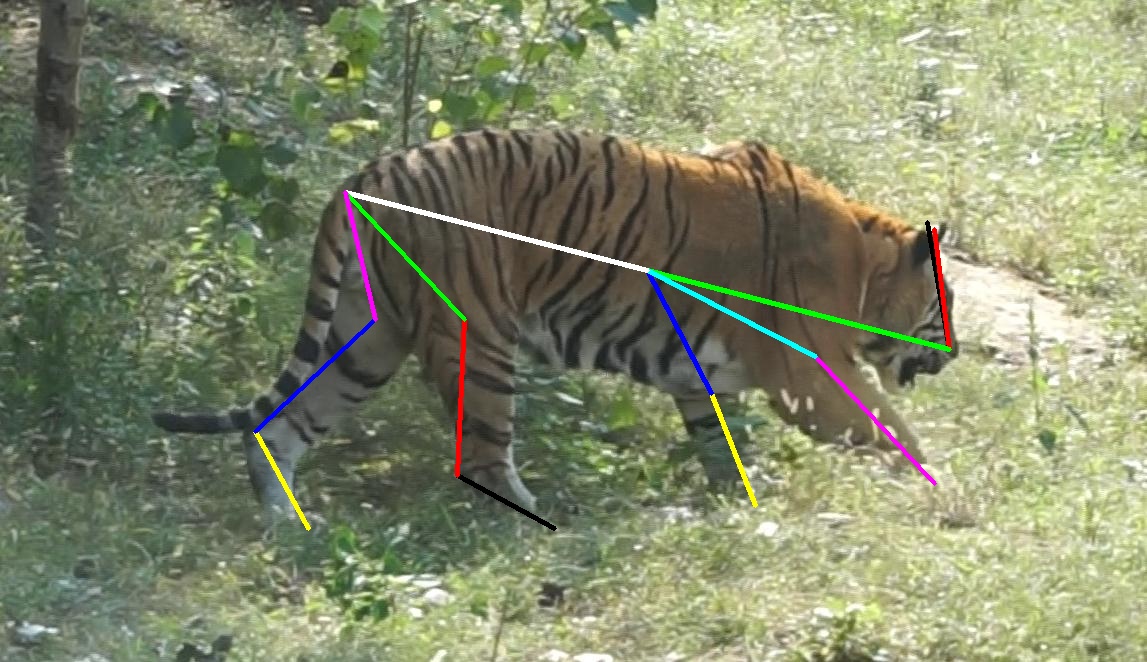Using HRNet for CVWC 2019 Tiger Pose Track Challenge based on https://github.com/leoxiaobin/deep-high-resolution-net.pytorch. For the keypoints difference between human and tiger, we made some modifications in the original cocoapi.
The code is developed using python 3.6.6 on Ubuntu 16.04. NVIDIA GPUs are needed. The code is developed and tested using 1 Tesla V100 GPU cards. Other platforms or GPU cards are not fully tested, and you need pay attention to the modification of the parameters in cfg file, like LR, END_EPOCH, BATCH_SIZE_PER_GPU and etc. You can refer to the scheduling rules from Detectron.
-
Install pytorch >= v1.0.0 following official instruction. Note that if you use pytorch's version < v1.0.0, you should following the instruction at https://github.com/Microsoft/human-pose-estimation.pytorch to disable cudnn's implementations of BatchNorm layer. We encourage you to use higher pytorch's version(>=v1.0.0)
-
Clone this repo, and we'll call the directory './CVWC2019-pose/deep-high-resolution-net.pytorch' you cloned as ${POSE_ROOT}. And './CVWC2019-pose/cocoapi' as ${COCOAPI}.
-
Install dependencies under {POSE_ROOT}:
pip install -r requirements.txt -
Make libs:
cd ${POSE_ROOT}/lib make -
Install modified cocoapi:
cd ${COCOAPI}/PythonAPI # Install into global site-packages make install # Alternatively, if you do not have permissions or prefer # not to install the COCO API into global site-packages python3 setup.py install --user -
Init output(training model output directory) and log(tensorboard log directory) directory under ${POSE_ROOT}:
mkdir output mkdir logYour directory tree should looks like this:
${POSE_ROOT} ├── data ├── experiments ├── lib ├── log ├── models ├── output ├── tools ├── train.sh ├── test.sh └── requirements.txt -
Download pretrained models from HRNet model zoo(GoogleDrive or OneDrive)
${POSE_ROOT} `-- models `-- pytorch |-- imagenet | |-- hrnet_w48-8ef0771d.pth
For CVWC 2019 Tiger Pose Track data, you should make them like this:
${POSE_ROOT}
|-- data
`-- |-- atrw
`-- |-- pose
`-- |-- annotations
| |-- image_info_test.json
| |-- keypoints_train.json
| |-- keypoints_trainval.json
| |-- keypoints_val.json
`-- images
`-- test
| |-- 000000.jpg
| |-- 000004.jpg
`-- train
|-- 000002.jpg
|-- 000003.jpg
|-- ...
`-- val
|-- 000001.jpg
|-- 000013.jpg
|-- ...
`-- trainval
|-- 000001.jpg
|-- 000002.jpg
|-- ...
You can directly download the json files from dir 'data/atrw/pose/annotations'.
Please pay attention to modify the parameter of DATASET in cfg file for training or testing.
bash train.sh
bash test.sh
Thanks for MSRA's wonderful work
@inproceedings{sun2019deep,
title={Deep High-Resolution Representation Learning for Human Pose Estimation},
author={Sun, Ke and Xiao, Bin and Liu, Dong and Wang, Jingdong},
booktitle={CVPR},
year={2019}
}
@inproceedings{xiao2018simple,
author={Xiao, Bin and Wu, Haiping and Wei, Yichen},
title={Simple Baselines for Human Pose Estimation and Tracking},
booktitle = {European Conference on Computer Vision (ECCV)},
year = {2018}
}



